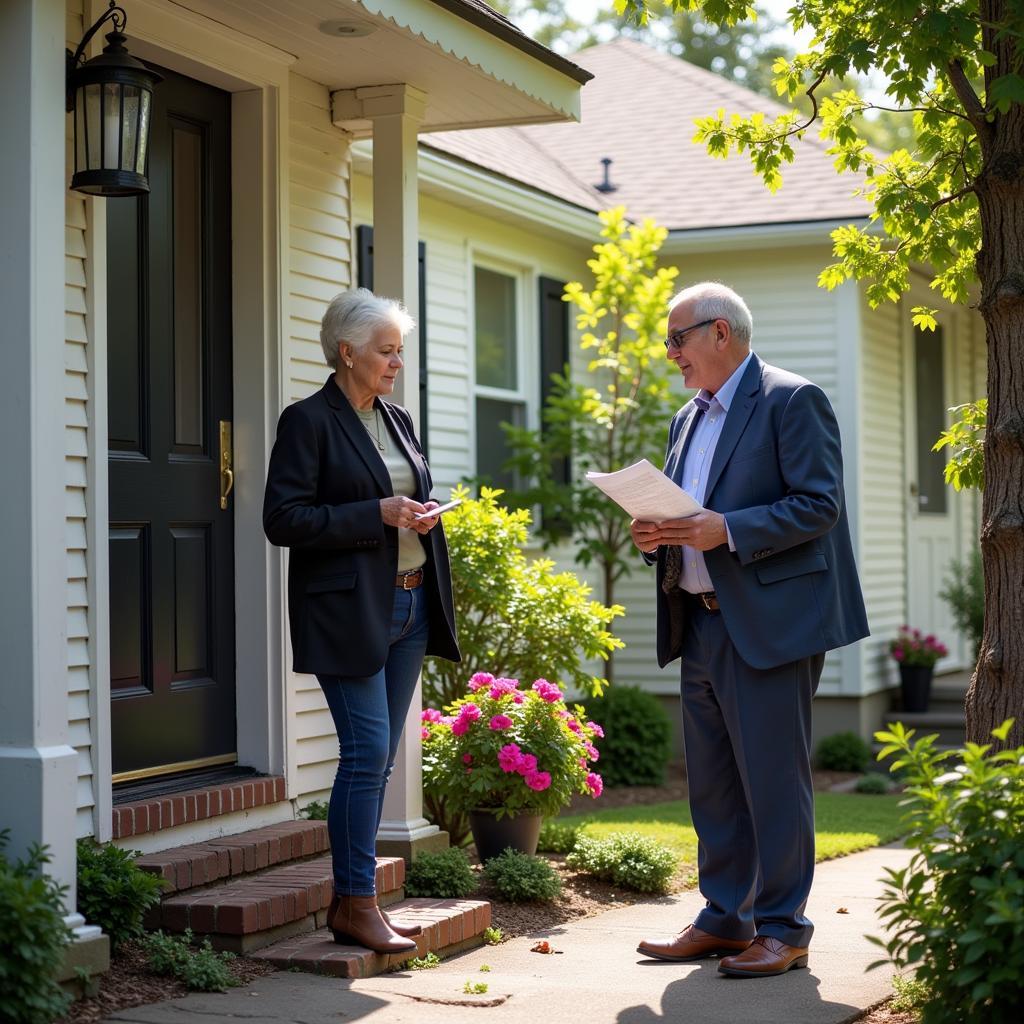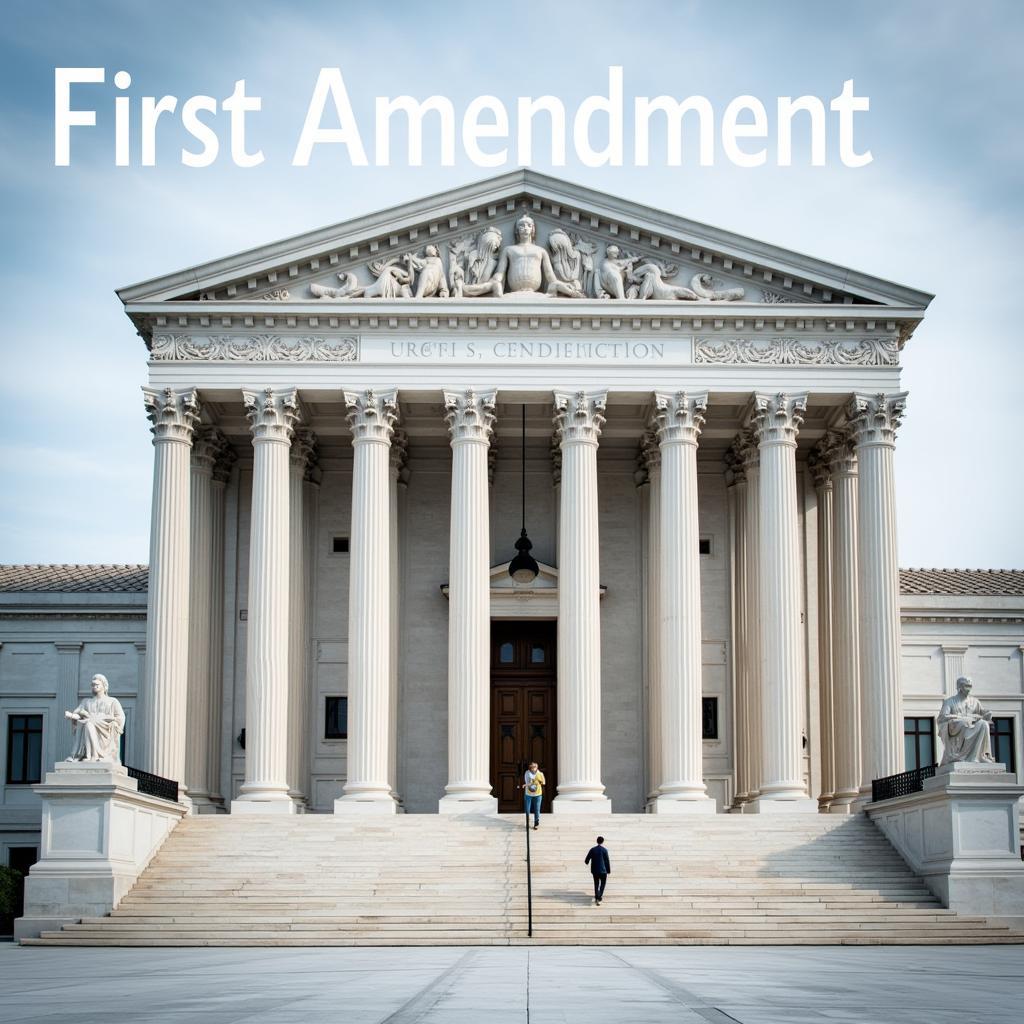The landmark case of Watchtower Society v. Village of Stratton significantly impacted religious freedom in the United States. This case, focusing on the right to freely exercise religious beliefs, highlighted the tension between local ordinances and constitutional rights. The Supreme Court’s decision in 2002 affirmed the importance of protecting religious expression from undue government restrictions.
The case originated in the Village of Stratton, Ohio, where an ordinance required individuals engaging in door-to-door advocacy or soliciting to obtain a permit from the mayor’s office. This ordinance applied to all groups, from political canvassers to religious groups like the Watchtower Bible and Tract Society, the publishing arm of Jehovah’s Witnesses. The Watchtower argued that the ordinance violated their First Amendment rights, specifically the free exercise of religion and freedom of speech, by hindering their door-to-door ministry.
The Core Issue: Freedom to Share Beliefs
The central question in Watchtower Society v. Village of Stratton revolved around the constitutionality of Stratton’s ordinance. Did requiring a permit for door-to-door ministry infringe upon the fundamental right to share religious beliefs? The Watchtower contended that the permit requirement placed an undue burden on their religious practice, essentially requiring government permission to exercise a core tenet of their faith. This, they argued, ran counter to the principles of religious freedom enshrined in the First Amendment. For the Jehovah’s Witnesses, door-to-door ministry is more than just sharing information; it’s a deeply held religious practice, a way to express their faith and fulfill what they believe is a divine command. The case also raised concerns about potential discrimination, as the permit process granted discretion to local officials, who could potentially deny permits based on personal biases or disapproval of certain groups.
watchtower bible and tract society v village of stratton
 Jehovah's Witnesses Engaging in Door-to-Door Ministry
Jehovah's Witnesses Engaging in Door-to-Door Ministry
The Supreme Court’s Decision and its Implications
The Supreme Court ultimately sided with the Watchtower Society, ruling that the Stratton ordinance was unconstitutional. The Court found that the ordinance’s broad sweep unnecessarily burdened the free exercise of religion. This decision reaffirmed the principle that the government cannot place undue restrictions on religious expression, particularly when it comes to activities central to a faith’s practice. The ruling also underscored the importance of protecting anonymous speech and advocacy. The Court acknowledged the village’s interest in preventing fraud and crime, but stated that these concerns could be addressed through less restrictive means than a blanket permit requirement. This decision had a significant impact beyond the Jehovah’s Witnesses, setting a precedent for protecting various forms of door-to-door advocacy, including political campaigning and charitable solicitations. The case of Watchtower v. Stratton stands as a crucial legal victory for religious freedom, reinforcing the right of individuals and groups to share their beliefs without unnecessary government interference.
What was the main argument of the Watchtower Society?
The Watchtower Society’s main argument was that the Stratton ordinance violated their First Amendment right to the free exercise of religion.
watchtower bible and tract society v stratton
 Supreme Court Building with First Amendment Overlay
Supreme Court Building with First Amendment Overlay
Protecting Religious Freedom and Promoting Peaceful Coexistence
The Watchtower Society v. Stratton case illustrates the ongoing dialogue between religious freedom and community regulations. It emphasizes the need for laws that protect both public safety and the constitutional right to freely practice one’s religion. In a diverse society, it is essential to find a balance that respects both individual liberties and the common good. Finding this balance is crucial for fostering peaceful coexistence and mutual understanding.
“True religious freedom requires respect for all faiths and beliefs,” states Dr. Anya Sharma, a renowned scholar of religious studies. “The Stratton case reminds us that government overreach can stifle religious expression and hinder the peaceful sharing of ideas.”
How did the Stratton case affect other groups?
The Watchtower v. Stratton ruling set a precedent protecting various forms of door-to-door advocacy, benefiting groups beyond religious organizations.
Conclusion: Upholding Freedom for a More Peaceful World
The Watchtower Society v. Village of Stratton case stands as a significant milestone in protecting religious freedom in the United States. It reminds us of the importance of safeguarding the right to express one’s beliefs freely, a cornerstone of a peaceful and tolerant society. This case underscores the need for ongoing dialogue and understanding to ensure that all individuals can exercise their religious freedoms without unnecessary government interference.
FAQ
- What year did the Supreme Court rule on Watchtower Society v. Village of Stratton? (2002)
- Which amendment did the case primarily concern? (The First Amendment)
- Where did the case originate? (Village of Stratton, Ohio)
- What was the main issue in the case? (Permit requirement for door-to-door ministry)
- Who won the case? (Watchtower Bible and Tract Society)
- Why is this case considered a landmark case? (It significantly impacted religious freedom.)
- How does this case relate to freedom of speech? (It also addresses restrictions on free speech concerning religious advocacy.)
Further Exploration
For more information on related topics, please visit:
If you need assistance, please contact us:
Phone: 02043854663
Email: [email protected]
Address: Khu 34, Bac Giang, 260000, Vietnam.
We have a 24/7 customer support team.